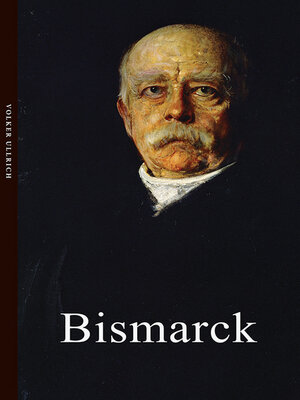
Sign up to save your library
With an OverDrive account, you can save your favorite libraries for at-a-glance information about availability. Find out more about OverDrive accounts.
Find this title in Libby, the library reading app by OverDrive.



Search for a digital library with this title
Title found at these libraries:
| Library Name | Distance |
|---|---|
| Loading... |
Otto von Bismarck (1815–98) has gone down in history as the Iron Chancellor, a reactionary and militarist whose 1871 unification of Germany set Europe down the path of disaster to World War I. But as Volker Ullrich shows in this new edition of his accessible biography, the real Bismarck was far more complicated than the stereotype.
A leading historian of nineteenth- and twentieth-century history, Ullrich demonstrates that the "Founder of the Reich" was in fact an opponent of liberal German nationalism. After the wars of 1866 and 1870, Bismarck spent the rest of his career working to preserve peace in Europe and protect the empire he had created. Despite his reputation as an enemy of socialism, he introduced comprehensive health and unemployment insurance for German workers. Far from being a "man of iron and blood," Bismarck was in fact a complex statesman who was concerned with maintaining stability and harmony far beyond Germany's newly unified borders.
Comprehensive and balanced, Bismarck shows us the post-reunification value of looking anew at this monumental figure's role in European history.
A leading historian of nineteenth- and twentieth-century history, Ullrich demonstrates that the "Founder of the Reich" was in fact an opponent of liberal German nationalism. After the wars of 1866 and 1870, Bismarck spent the rest of his career working to preserve peace in Europe and protect the empire he had created. Despite his reputation as an enemy of socialism, he introduced comprehensive health and unemployment insurance for German workers. Far from being a "man of iron and blood," Bismarck was in fact a complex statesman who was concerned with maintaining stability and harmony far beyond Germany's newly unified borders.
Comprehensive and balanced, Bismarck shows us the post-reunification value of looking anew at this monumental figure's role in European history.







